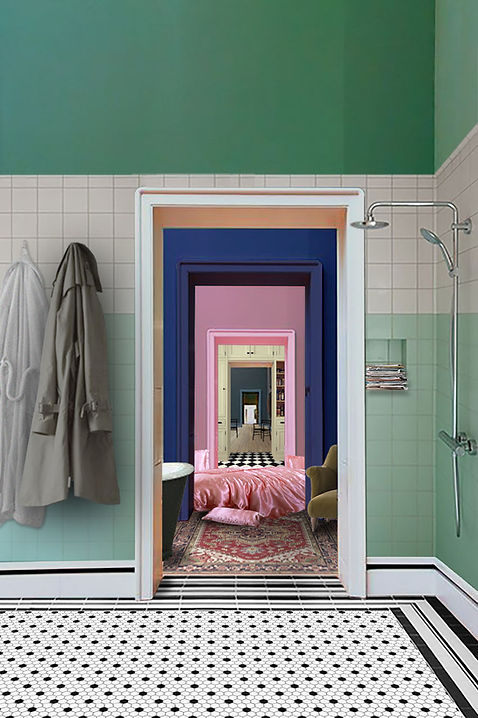Power
Edit’s entry to the RIBA competition, Power, references Judith Butler’s ideas on gender performativity to explore how the contemporary home functions as a set for patriarchal performances.
The project proposes to transform the RIBA gallery into an enfilade of domestic rooms, for the public to walk through and engage with, but that can also be watched from ‘backstage’.
The design of each set aims to challenge current gender and familial roles, as well as contemporary notions of privacy, through several modes of disruption of its props such as: altering scale of a space/object, altering position in space/home of an object/ritual, repetition of objects, change of user/number of users, change of materiality.


The proposal takes the public through a processional route in an uncanny home where rooms are recognisable but altered to hint at alternative ways of living. At the end of the route one is found backstage where a seating area is provided, the public is both audience and actor. Power dynamics in the home are disputed, layouts and domestic rituals questioned, in a proposal that instead of giving answers provides the public with thought provoking nudges to all the assumptions that guide the design of domestic space.